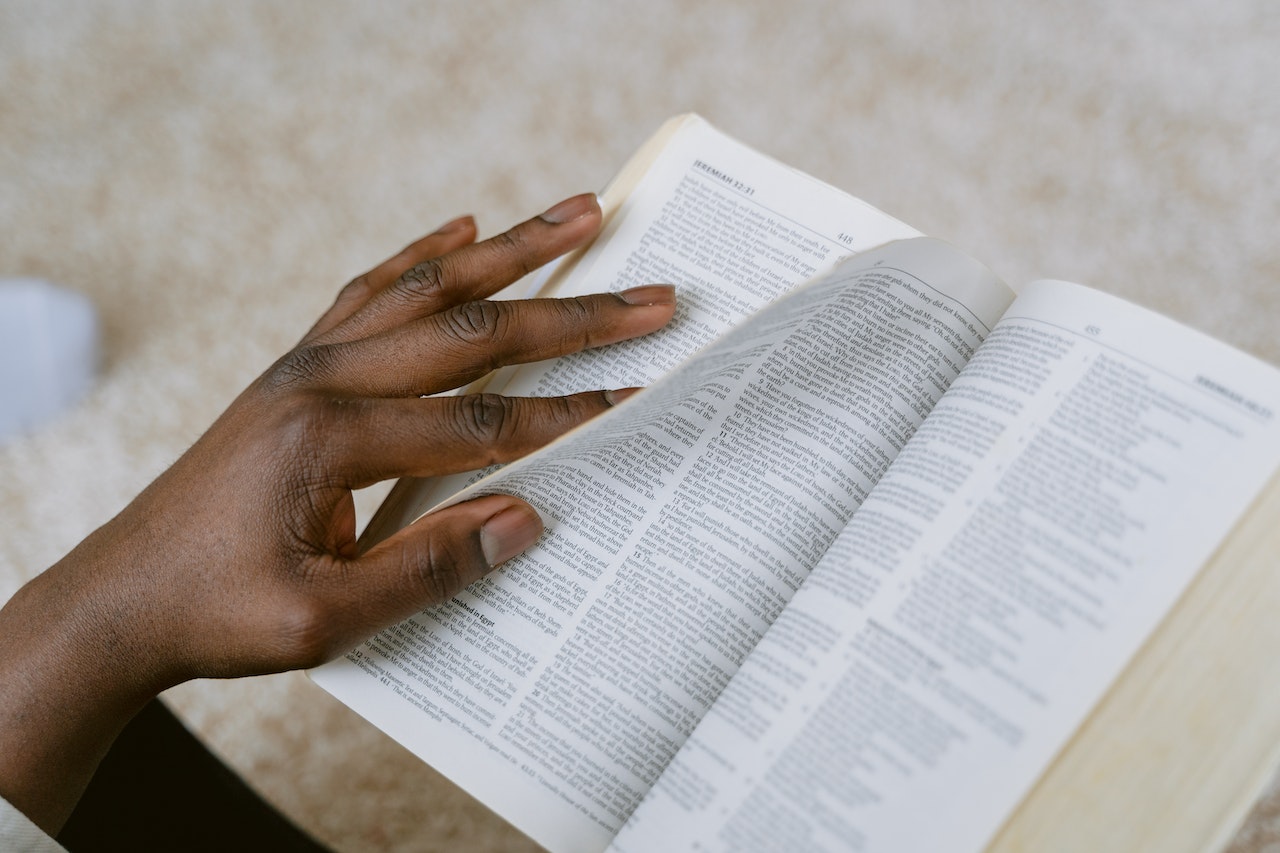When it comes to prayer, individuals have different preferences and beliefs regarding whether they should speak out loud or maintain a silent dialogue with a higher power. Some people find speaking out loud during prayer to be a meaningful and powerful way to express their thoughts and emotions, while others prefer a more internalized and silent approach. Ultimately, the decision to speak out loud when praying is a personal choice that depends on an individual’s spiritual practices, cultural background, and personal beliefs.
Table of Contents
The Power of Vocal Prayer: Speaking Out Loud in Prayer
Prayer is a deeply personal and spiritual practice that can take many forms. Some people prefer to pray silently, while others find comfort and connection in speaking out loud. But should you speak out loud when praying? Is there any power in vocal prayer? Let’s explore the benefits and considerations of speaking out loud in prayer.
One of the main advantages of vocal prayer is the ability to engage multiple senses. When we speak out loud, we not only hear our own words, but we also feel the vibrations in our bodies. This physical experience can help us feel more connected to our prayers and the divine. It’s like adding an extra layer of depth to our communication with God or the universe.
Speaking out loud in prayer can also help us focus and stay present. When we pray silently, it’s easy for our minds to wander and for distractions to creep in. But when we speak out loud, we are forced to pay attention to the words we are saying. This can help us stay grounded and fully present in the moment, allowing us to truly connect with our prayers.
Furthermore, vocal prayer can be a powerful tool for self-expression and emotional release. Sometimes, we may find it difficult to put our thoughts and feelings into words. Speaking out loud in prayer can provide a safe space for us to express ourselves fully and honestly. It allows us to vocalize our joys, sorrows, hopes, and fears, giving voice to our deepest emotions. In doing so, we may find solace, clarity, and even healing.
Another benefit of speaking out loud in prayer is the sense of community it can foster. When we pray together with others, whether it’s in a religious setting or with loved ones, vocal prayer can create a shared experience. It allows us to connect on a deeper level, as we hear and respond to each other’s prayers. This communal aspect of vocal prayer can be comforting and uplifting, reminding us that we are not alone in our spiritual journey.
However, it’s important to note that speaking out loud in prayer is not the only way to connect with the divine. Silent prayer has its own unique benefits and can be just as powerful. It allows for introspection, stillness, and a deepening of our inner connection. Ultimately, the choice between vocal and silent prayer is a personal one, and there is no right or wrong way to pray.
In conclusion, speaking out loud in prayer can be a powerful and meaningful practice. It engages multiple senses, helps us stay present, allows for self-expression, and fosters a sense of community. However, it’s important to remember that silent prayer also has its own merits. The most important thing is to find a prayer practice that resonates with you and allows you to connect with the divine in a way that feels authentic and meaningful. So, whether you choose to speak out loud or pray silently, may your prayers be filled with love, gratitude, and a deep sense of connection.
The Benefits of Audible Prayer: Should You Speak Out Loud When Praying?
Prayer is a deeply personal and spiritual practice that has been a part of human culture for centuries. It is a way for individuals to connect with a higher power, seek guidance, and express gratitude. While prayer can take many forms, one question that often arises is whether it is necessary to speak out loud when praying. Some people prefer to pray silently, while others find comfort in vocalizing their prayers. In this article, we will explore the benefits of audible prayer and help you decide if speaking out loud when praying is right for you.
One of the main advantages of speaking out loud when praying is the ability to focus and concentrate. When we vocalize our prayers, it helps to keep our minds from wandering and allows us to fully engage in the act of prayer. By speaking our thoughts and desires out loud, we are able to articulate them more clearly and bring them to the forefront of our minds. This can lead to a deeper sense of connection and a more meaningful prayer experience.
Another benefit of audible prayer is the power of sound. Sound has a unique ability to affect our emotions and create a sense of presence. When we speak out loud, we can hear our own voice and feel the vibrations it creates. This can create a physical and emotional connection to our prayers, making them feel more real and tangible. The act of speaking out loud can also help to release any pent-up emotions or frustrations, allowing us to express ourselves fully and honestly.
Speaking out loud when praying can also be a way to strengthen our faith and build a sense of community. When we pray audibly, we are not only speaking to a higher power but also sharing our thoughts and intentions with those around us. This can create a sense of unity and support, as we realize that we are not alone in our struggles and desires. It can also be a way to inspire and encourage others, as they hear our prayers and witness our faith in action.
Furthermore, audible prayer can be a powerful tool for self-reflection and personal growth. When we speak out loud, we are forced to confront our thoughts and beliefs head-on. This can lead to a deeper understanding of ourselves and our relationship with the divine. By vocalizing our prayers, we are able to hear our own words and reflect on their meaning. This can help us to identify areas of growth, seek forgiveness, and set intentions for the future.
In conclusion, speaking out loud when praying can offer numerous benefits. It can help us to focus and concentrate, create a sense of presence, strengthen our faith, build a sense of community, and promote self-reflection. However, it is important to remember that prayer is a personal practice, and what works for one person may not work for another. Whether you choose to speak out loud or pray silently, the most important thing is to find a method that resonates with you and allows you to connect with your higher power. So, the next time you find yourself in prayer, consider giving audible prayer a try and see how it enhances your spiritual experience.
Exploring the Role of Verbal Expression in Prayer: To Speak or Not to Speak Out Loud?
Prayer is a deeply personal and spiritual practice that has been a part of human culture for centuries. It is a way for individuals to connect with a higher power, seek guidance, and express gratitude. But when it comes to the act of praying, there is a question that often arises: should you speak out loud or keep your prayers silent?
There are different schools of thought on this matter. Some believe that speaking out loud during prayer is essential, as it allows for a more direct and intimate connection with the divine. They argue that verbal expression adds power and intention to the words spoken, making them more meaningful and impactful.
On the other hand, there are those who prefer to keep their prayers silent. They believe that prayer is a personal conversation between oneself and a higher power, and that speaking out loud is unnecessary. For them, silent prayer allows for a deeper level of introspection and concentration, enabling them to focus solely on their thoughts and emotions.
So, which approach is right? The truth is, there is no one-size-fits-all answer. The decision to speak out loud or keep prayers silent ultimately depends on the individual and their personal preferences and beliefs. It is a matter of finding what works best for you and what helps you feel the most connected to your spirituality.
Speaking out loud during prayer can be a powerful and cathartic experience. It allows you to vocalize your thoughts and emotions, giving them a tangible form. This can be especially helpful when dealing with intense emotions or seeking comfort and solace. By speaking out loud, you are actively engaging with your prayers and making them more real and present in your life.
Furthermore, speaking out loud can also help to keep your mind focused and prevent distractions. When you verbalize your prayers, you are less likely to drift off or let your thoughts wander. The act of speaking forces you to be present in the moment and fully engaged with your spiritual practice.
On the other hand, silent prayer has its own benefits. It provides a space for quiet reflection and introspection, allowing you to delve deep into your thoughts and emotions. Silent prayer can be a meditative experience, helping you to find inner peace and clarity. It allows you to listen to your inner voice and connect with your spirituality on a more profound level.
Additionally, silent prayer can be a way to respect the privacy and sacredness of your thoughts. Some individuals feel that their prayers are meant to be kept between themselves and their higher power, and speaking out loud would diminish the intimacy of the experience. Silent prayer allows for a more personal and intimate connection, free from external distractions or judgments.
In the end, the choice between speaking out loud or keeping prayers silent is a personal one. It is about finding what resonates with you and what helps you feel the most connected to your spirituality. Whether you choose to speak out loud or keep your prayers silent, what matters most is the intention and sincerity behind your words. As long as your prayers come from the heart, they will be heard.
The Significance of Vocalizing Prayers: Should You Consider Speaking Out Loud When Praying?
Prayer is a deeply personal and spiritual practice that holds different meanings for different people. Some individuals find solace in silently communicating with a higher power, while others prefer to vocalize their prayers. The question arises: should you consider speaking out loud when praying? Let’s explore the significance of vocalizing prayers and the potential benefits it may bring.
Speaking out loud during prayer can have a profound impact on the overall experience. When we vocalize our prayers, we engage not only our minds but also our bodies. The act of speaking allows us to fully immerse ourselves in the moment, creating a deeper connection with our spirituality. It is a way of expressing our thoughts and emotions, giving them a tangible form.
Furthermore, speaking out loud can help us focus and maintain our attention during prayer. In a world filled with distractions, it is easy for our minds to wander off, even during moments of deep reflection. By vocalizing our prayers, we anchor ourselves in the present moment, preventing our thoughts from drifting away. The sound of our own voice can serve as a gentle reminder to stay focused and centered.
Another benefit of speaking out loud when praying is the power of affirmation. When we hear our own words, we reinforce our beliefs and intentions. By vocalizing our prayers, we are not only communicating with a higher power but also affirming our desires and aspirations. This can be particularly empowering and uplifting, as it strengthens our resolve and helps us stay committed to our spiritual journey.
Moreover, speaking out loud can foster a sense of community and connection. When we pray together with others, the act of vocalizing our prayers creates a shared experience. It allows us to feel united in our beliefs and intentions, creating a sense of belonging and support. By speaking out loud, we invite others to join us in our spiritual journey, fostering a deeper sense of connection and understanding.
However, it is important to note that the choice of whether to speak out loud when praying ultimately depends on personal preference and comfort. Some individuals may find solace in silent prayer, where they can retreat into their own thoughts and emotions without the need for vocalization. Others may feel more connected and engaged when they speak out loud. There is no right or wrong way to pray, as long as it comes from a place of sincerity and authenticity.
In conclusion, the significance of vocalizing prayers should not be underestimated. Speaking out loud during prayer can deepen our connection with our spirituality, help us stay focused, affirm our beliefs, and foster a sense of community. However, it is essential to remember that prayer is a personal and individual practice, and the choice of whether to speak out loud or not should be based on personal preference and comfort. Ultimately, what matters most is the sincerity and authenticity with which we approach our prayers, regardless of how we choose to vocalize them.
Conclusion
In conclusion, whether or not to speak out loud when praying is a personal choice that varies among individuals and religious beliefs. Some people find speaking out loud to be a meaningful and powerful way to connect with their faith, while others prefer silent or internal prayer. Ultimately, the decision should be based on personal preference and what feels most authentic and meaningful to the individual.
For licensing reasons, we must provide the following notice: This content was created in part with the help of an AI.


